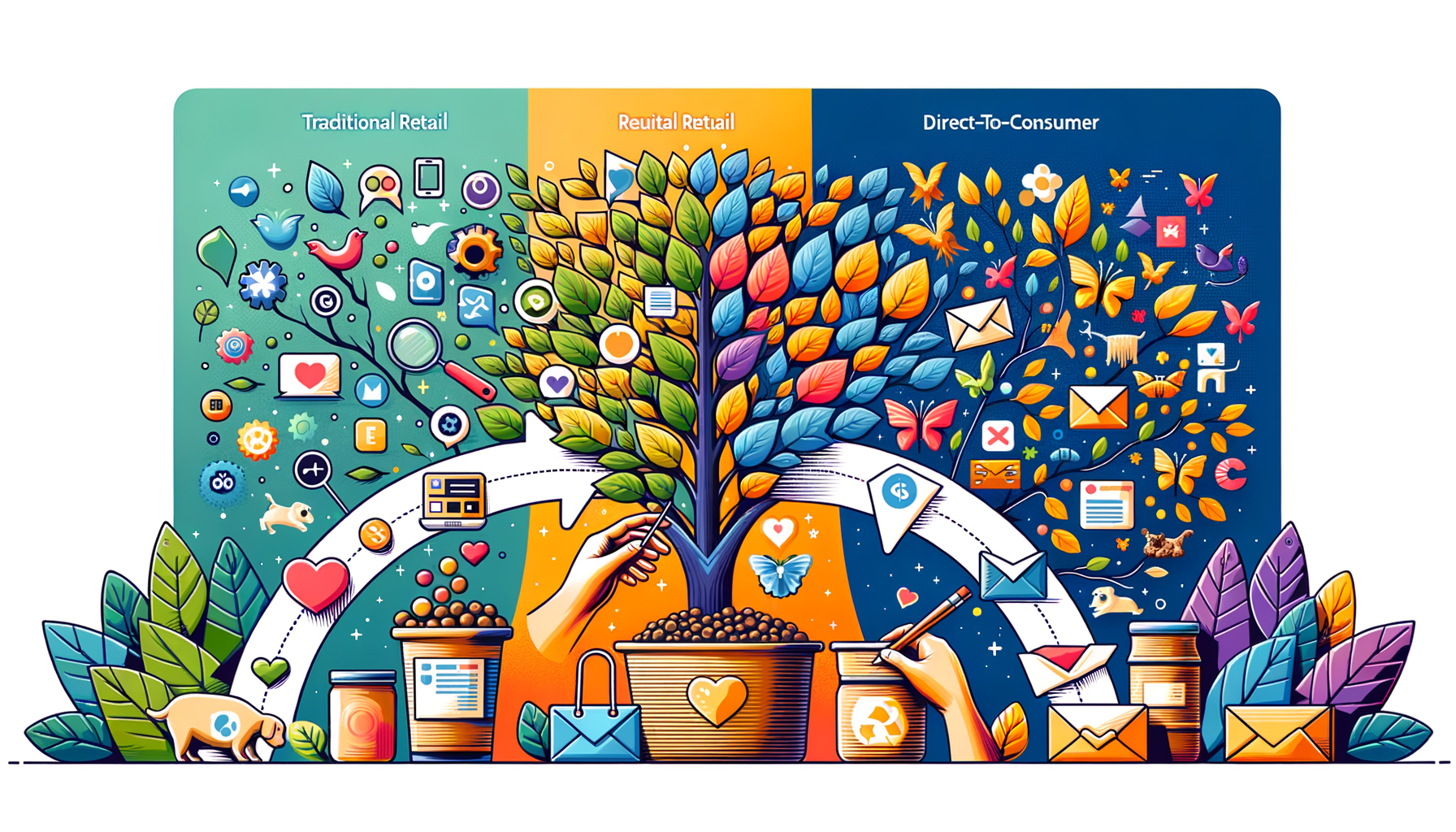“Direct-to-Consumer Strategy: Pivotal Growth Trends and Tips for Success”

In the digital era, the retail landscape has transformed tremendously. The shift from traditional brick-and-mortar businesses to e-commerce has been impressive, and among the most dominant trends is the growth of Direct-to-Consumer (D2C) brands.
A D2C business operates by selling products directly to consumers, eliminating the middlemen in the traditional retail supply chain. This model offers a plethora of benefits including a more personalized customer experience, greater control over product quality, branding, and customer service.
D2C brands have experienced exponential growth. For instance, the US has seen an eightfold increase in the number of D2C brands in the last decade alone, and these brands have grown twice as fast as e-commerce as a whole. It’s clear then, that D2C is more than just a passing trend; it’s a new way of business that’s here to stay.
However, the D2C landscape is also highly competitive. The ongoing challenge for these businesses is not only to attract customers but to retain them as well. Considering this, we will delve into three of the most effective strategies for D2C growth.
1. Leverage Social Media for Organic and Paid Growth:
D2C brands thrive online, particularly on social media platforms. The advent of various social media platforms such as Facebook, Instagram, Twitter, and others, has provided an unprecedented opportunity for companies to connect with their audience directly and in an engaging manner.
Many successful D2C brands implement a two-pronged approach on social media. This typically involves nurturing organic growth through quality content that engages users, as well as promoting paid advertisements strategically. Celebrities and influencers can be roped into promoting the brand’s products, which further extends the brand’s reach. A combination of these tactics can lead to exponential growth.
2. Use Email Marketing to Build a Strong Customer Base:
Despite the advancement of many digital communication channels, email marketing remains a powerful tool for D2C brands. It offers an intimate and direct line of communication with customers.
To optimize the benefits of email marketing, brands should focus on developing compelling content that provides value to customers. This could be anything from exclusive deals, new product updates, or even personalized recommendations based on past purchases.
Email marketing automation tools can also be used to customize and schedule emails, thereby ensuring timely and targeted communication with customers. A strategic and consistent email marketing strategy can lead to increased customer loyalty and repeat purchases.
3. Foster a Strong Community Through Content Marketing:
A well-executed content marketing strategy can help D2C brands foster a sense of community among their customers. This approach strives to create and distribute high-quality, relevant, and engaging content that resonates with the audience.
Content can take various forms including blog articles, videos, podcasts, and interactive quizzes. The goal is to entertain, inform, and inspire the audience, thereby generating buzz around the brand.
By engaging customers in meaningful ways, brands become more than just purveyors of goods – they become trusted sources of information and platforms for interaction. An engaged and loyal fan base will not only buy more frequently from the brand but will also be more likely to refer friends and family, amplifying the brand’s reach and impact.
The D2C market is booming, and all signs indicate that this growth is likely to continue. Businesses looking to make their mark in this landscape need to constantly innovate and understand their customers’ needs.
To drive D2C growth, businesses should leverage social media for organic and paid growth, use email marketing to build a strong customer base, and foster a strong community through content marketing. These strategies, when executed effectively, can provide a competitive edge and enable sustained growth in this fast-paced and dynamic market.
In conclusion, while transitioning from a traditional business model to D2C brings about its fair share of challenges, it also presents lucrative opportunities. As the D2C landscape continues to evolve, brands that prioritize customer engagement and experience will thrive. Remember, success in D2C means more than just selling a product; it means building relationships with customers – understanding them, communicating with them, and serving them effectively. These are the core ingredients for success in the D2C space.

Recent Comments